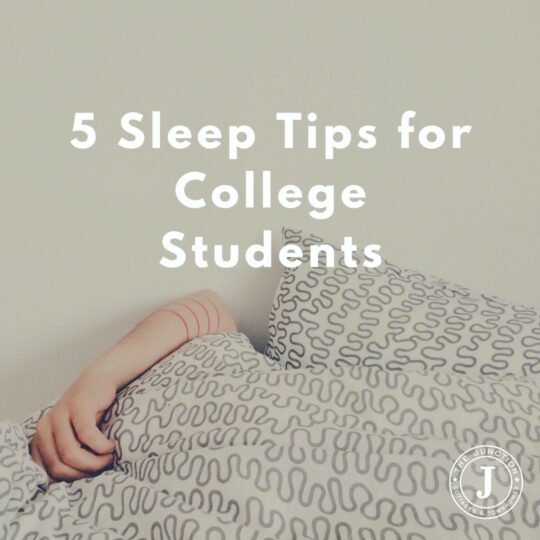5 Important Sleep Tips for College Students

When you’re in your early college years, there is simply so many things to do and it can easily feel like there is not enough time to do it all in. Weekend parties and weeknight study sessions can have you regularly staying up all night. Yet, early classes and afternoon work hours can also mean early alarms and the need for all-day alertness. So how do you balance it all and get solid sleep when you can? Check out the following important sleep tips and see if you don’t enjoy a better, more restful night’s sleep:
5 Important Sleep Tips for College Students
- Find your natural sleep rhythm and base your schedule around it. One of the best perks about being an adult is that you can better take control of your life and create a schedule and lifestyle that best suits you and your needs. You might have heard the term ‘night owl’ and ‘morning bird’ but did you know there are actually three general sleep rhythm categories? These are three types of sleep rhythms that people tend to fall in and, when they follow their natural sleep rhythm, they tend to enjoy the highest quality of sleep and wakefulness. Those three sleep rhythm types are the night owl (who stays up late and sleeps in late), the lark (who goe to bed early and enjoys waking up early), and the finch (who has a more day-oriented schedule that lies in the middle of the night owl and early morning lark). Experiment and find when you naturally feel most at sleep and most awake, then try and adapt your schedule to fit your natural rhythm.
- Make your bed a sleep-only zone. This one is a mental tip, but an important one. When you associate your bed only with sleeping, then you will find that getting to sleep comes more easily and naturally. So, in other words, stop watching tv in bed! Avoid studying in bed! Don’t browse social media in bed! Leave the entertainment for your shared Junction apartment living room or for a comfy sofa in your room. And keep the studying at your desk, cafe, library, or another study-oriented zone. Furthermore, try and only slip into bed when you’re tired to prevent the tossing and turning that can hurt your sleep habits.
- Make exercising a habit. Exercise is another important thing for college students to keep up with and keep track of. The Freshman 15 isn’t a myth and many first-year students struggle with unanticipated weight gain. The reason is because of the sudden freedom from familial habits and structures. You now can eat whatever you want and whenever you want and eating those bad-for-you-foods can be oh so tempting. Not to mention the havoc partying can do on your body. All of this also plays a very negative impact on the quality of your sleep. Bad foods paired with no exercise can make it hard to sleep. Fix this by prioritizing healthy meals and getting sufficient exercise. Exercise will both help you keep that Freshman 15 at bay and will help you burn off that excess energy. Burning off that energy will help you sleep better and longer. Note, however, that to get the best sleep-related benefits of exercise, you’ll want to exercise closer to the beginning of the day.
- Spend more time outside. Exciting new research shows that spending more time outside can help improve your sleep cycles. This is because many people’s bodies want to naturally be in tune with the light and dark cycles of day and night and so the sooner you get outside, the more quickly you’ll fall in step with the natural cycle. Furthermore, exposure to sunlight has been shown to increase the brain’s release of the hormone serotonin. Seratonin is an emotion-boosting hormone that helps to keep a person focused and happy. So go outside and soak up that sunlight!
- Try for 8 to 9 hours. This one might be the hardest to achieve right now. But, where possible, you should aim to get 8 to 9 hours of sleep. A full night’s sleep will help you wake up more energized and in a better mood. If you’re having trouble falling asleep right away, try and reduce your caffeine intake. Avoid alcohol and screens before bed can also really help.
Sleep Well Residents!
Sleep can seem like a weird concept in that in order to operate, humans need to spend a third of their life unconscious. Yet, getting a good night’s rest is so vital to our everyday activity and that period of unconsciousness offers our bodies a much-needed reboot. Getting a good night’s sleep has been shown to increase concentration, productivity, and overall brain activity. So if you’re looking for an easy way to improve your college grades, then look no further than your bedroom!